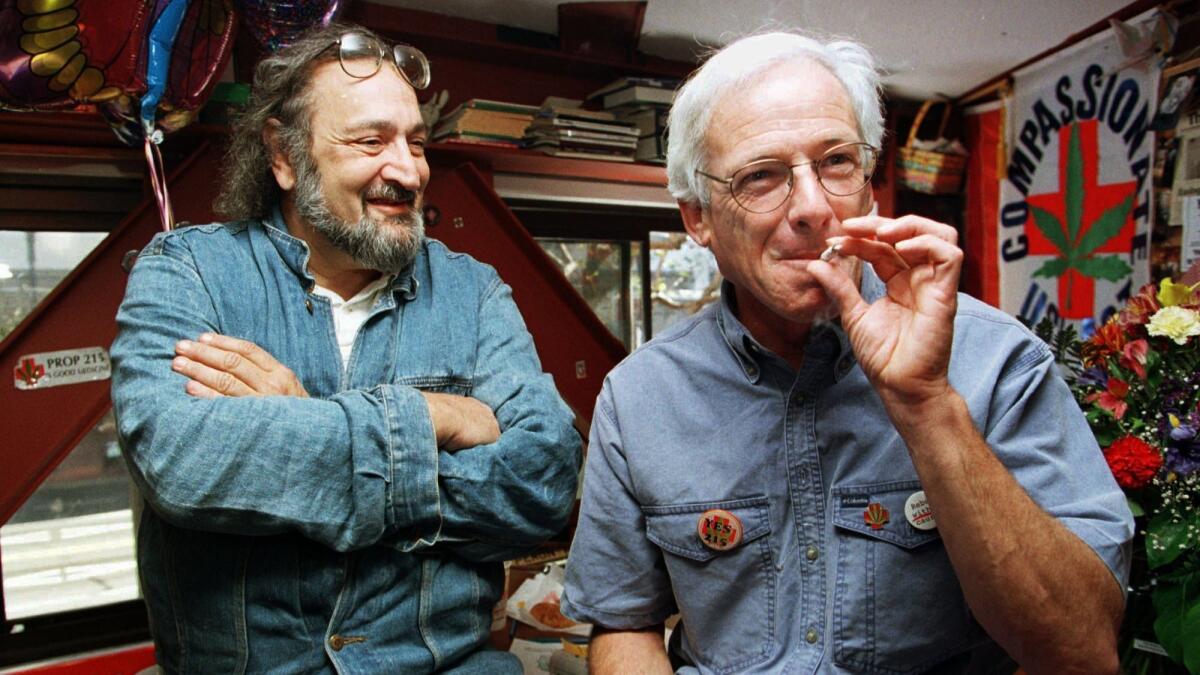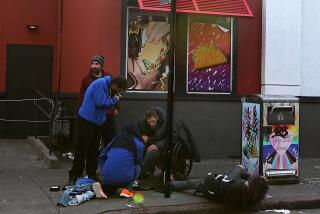Dennis Peron, activist who helped legalize medical marijuana in California, dies at 72

Reporting from San Francisco â Dennis Peron, an activist who was among the first people to argue for the benefits of marijuana for AIDS patients and helped legalize medical pot in California, has died in San Francisco.
Peron, who died Saturday at an area hospital, was 72. His death was announced on his official Facebook page. He had been battling cancer.
A longtime pot activist, Peron was a driving force behind a San Francisco ordinance allowing medical marijuana â a move that later aided the 1996 passage of Proposition 215 that legalized medical use in the entire state.
He argued for the benefits of medicinal marijuana for AIDS patients as the health crisis overtook San Francisco. The Chronicle said the epidemic took the life of his partner, Jonathan West, in 1990.
San Franciscoâs Board of Supervisors recognized Peron, suffering with late-stage lung cancer, with a certificate of honor last year. âThe father of medical marijuana,â one supervisor called him in the meeting.
âI came to San Francisco to find love and to change the world,â Peron said in reply. âI found love, only to lose him through AIDS. We changed the world.â
A Vietnam War veteran, Peron spent some of his last years on a farm in Lake County, growing and giving away medical marijuana.
Peron wrote in his 2012 book, âMemoirs of Dennis Peron,â that he was just a âgay kid from Long Island who joined the Air Force to get away from home.â
The Chronicle said he then moved to a commune in San Francisco where he befriended Supervisor Harvey Milk and began selling marijuana.
In 1991, Peron founded the first public cannabis dispensary in the country during the height of the U.S. drug war.
He and a friend distributed pot to AIDS patients, got busted several times and was shot in the leg by a police officer, the newspaper said.
The pot club served 9,000 clients before it was closed by a judge.
âThe city and the country [have] lost a cannabis leader who lived life on the edge,â Terrance Alan, a member of the cityâs Cannabis Commission, told the Chronicle. âHe lived his whole life on the edge, and thatâs what allowed us to lead in cannabis.â
More to Read
Start your day right
Sign up for Essential California for the L.A. Times biggest news, features and recommendations in your inbox six days a week.
You may occasionally receive promotional content from the Los Angeles Times.






